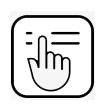
Substance abuse therapy digs into the "why" behind addiction—helping people identify habits and thoughts that block them from recovery.
Bloodshot Eyes
Changes in appetite or sleep patterns
Deterioration of physical appearance
Sudden weight loss or weight gain
Tremors, slurred speech, or impaired coordination

Marijuana, hashish, and other cannabis-containing substances
Although marijuana is now legal in many states and a popular recreational drug, addiction and dependence to it can still harmfully impact users. Wether you use cannabis by smoking, eating, or inhaling, marijuana can impede on your ability to live fully.

Alcohol
Drinking heavily can have physical side effects such as problems with the liver, stomach, heart, brain and nervous system, as well as increases the risk of cancer. In addition, vitamin and mineral deficiencies caused by drinking heavily can cause fatigue, gut problems, and more. Alcohol also has a strong negative impact on mental health, relationships, and our ability to focus, problem solve, and think clearly.

Opioids
Opioids are powerful drugs that can frequently result in overdose, death, and long-term physical health problems. Both its illegal forms, such as heroin, and its legal ones, like opiate medications, are misused. If you recognize these signs of narcotic use and dependence, reach out for professional help today:

Inhalants
Commonly inhaled substances include glue, paint thinners, correction fluid, felt tip marker fluid, gasoline, cleaning fluids, and household aerosol products. Although these may seem like common household items, they are very toxic and can be addicting, resulting in brain damage, death, and physical health problems. Signs and symptoms vary depending on the user and the substance, but can include:

Hallucinogens
Hallucinogens can include Lysergic Acid Diethylamide (LSD), Phencyclidine (PCP), and different forms of mushrooms. These substances cause large shifts of emotions (sometimes euphoria but other times more negative emotions) and hallucinations including visual, auditory, olfactory, and tactile. Other symptoms include:

Meth, cocaine, and other stimulants
Stimulants create an "upper" effect, giving the user a brief sense of energy, concentration and euphoria. They are usually highly addictive and can result in long-term physical health problems, overdose, and death. Stimulants include amphetamines, meth (methamphetamine), cocaine, methylphenidate (Ritalin, Concerta, others), and amphetamine-dextroamphetamine (Adderall XR, Mydayis).
Signs and symptoms of recent use can include:
Getting support from mental healthcare professionals and following a structured treatment plan can help you beat drug addiction.
Our services are goal-orientated and client-focused, so you can receive mental health therapy that fits your specific needs.

Find Your Therapist

Check Your Insurance

Schedule Your Session

Our drug and alcohol specialists will work to understand your unique situation and develop personalized strategies to help you manage symptoms and find recovery.
Heal and recover from the comfort of your own home with online therapy. Our professional online substance abuse therapists provide comprehensive and effective support to help you reach your goals.
Find Your Therapist
Our Therapists | Insurance | Services Offered | Privacy
We welcome a variety of major commercial insurance plans for substance abuse therapy, such as Aetna, Amerihealth, Cigna, Optum Health, United Healthcare, Tricare, and more. If you don't see your insurance listed, don't worry. We can verify your benefits to determine if we can accept them. If not, we offer a reasonable self-pay rate as an alternative option.
At Lifebulb, we believe in providing accessible therapy without any recurring memberships or fees. We believe that everyone deserves the best online substance abuse therapy experience without being burdened by additional costs. With us, the only costs you'll incur for your substance abuse therapy sessions are those determined by your insurance provider or our affordable self-pay rate.
While some practices limit their clientele to self-pay or out-of-network patients, at Lifebulb, we strive to make therapy accessible by accepting most major insurance plans. Typically, the out-of-pocket expense for each online substance abuse therapy session is a minimal copay determined by your insurance provider and plan. Additionally, we offer a competitive self-pay rate for individuals without insurance or those who prefer not to utilize their healthcare benefits for either in-person or virtual therapy sessions.
At Lifebulb, we have high standards for selecting therapists to ensure they can effectively assist you in achieving your substance abuse therapy goals. However, we acknowledge that not every drug and alcohol therapist may be the ideal fit for every client. If your substance abuse therapy experience doesn't meet your expectations, we're committed to assisting you in finding a therapist who better aligns with your needs and preferences. We can transfer you easily to another therapist in Lifebulb. Othertimes, clients may need more intensive care than Lifebulb provides. Lifebulb is not an inpatient facility, nor do we offer 24/hour support. For clients who need a more intensive approach, we can offer referrals to mental health facilities that will meet your needs.
We take the responsibility of maintaining your privacy seriously. Lifebulb is considered a covered entity under HIPAA guidelines, which means we are subject to all HIPAA rules and regulations. If you have any questions (or recommendations) about our privacy and security practices, we want to help. Contact us at privacy@lifebulb.com.
At Lifebulb, we prioritize the well-being of our drug and alcohol therapists because we understand that their satisfaction directly impacts the quality of care they provide to our clients. When therapists enjoy their workplace, they can offer the highest level of counseling and substance abuse therapy to their clients. This commitment ensures that your counselor or therapist can deliver effective treatments for substance abuse therapy near you, fostering a positive and supportive environment for your sessions.
In our online substance abuse therapy sessions, privacy and confidentiality are our top priorities. Conducted by our trained therapists, these sessions are held in secure virtual spaces. Our video platform is integrated into our HIPAA-compliant Electronic Health Records system, ensuring that your personal information, including your face, voice, and data, remains private and protected at all times.
Lifebulb is considered a covered entity under HIPAA guidelines, which means we are subject to all HIPAA rules and regulations. If you have any questions (or recommendations) about our privacy and security practices, we want to help. Contact us at privacy@lifebulb.com.
At Lifebulb, we prioritize the well-being of our therapists, understanding that their satisfaction directly impacts the quality of care they provide to our clients. Unlike other practices that prioritize growth over the people they employ, we prioritize both. Our belief is simple: happy therapists lead to better outcomes for our clients. By fostering a supportive and fulfilling work environment for our drug and alcohol therapists, we ensure they can deliver the best addiction therapy near me to those they serve. Our commitment to creating a positive workplace translates to better results for our clients, whether they seek in-person counseling or virtual therapy through our Find a Substance Abuse Therapist service.
Lifebulb prioritizes the careful selection of therapists to ensure our clients receive the best possible care. Our drug and alcohol therapists hold master's degrees or higher and undergo extensive training before obtaining full licensure. We have rigorous criteria for selecting therapists, focusing on those who share our core values. This ensures that your therapist is dedicated to providing exceptional online or in-person substance abuse therapy and will go above and beyond to help you achieve your goals.
Lifebulb offers substance abuse therapy at multiple locations, with new ones frequently added to accommodate our clients. Additionally, we provide telehealth or online substance abuse therapy sessions for individuals who are unable to access our physical offices or prefer remote counseling services. We are available throughout the states of Arizona, Deleware, Florida, Georgia, Louisiana, Massachusetts, New Jersey, Pennsylvania, South Carolina, Texas, Virginia, and West Virginia. Contact our team to learn more.
Each of our counselors holds a high level of education and clinical licensure in counseling practice. We meticulously vet our therapists through thorough interviews and background checks, supplemented by in-house training to align with our standards. Continuous education is also a priority, ensuring that our counselors and drug and alcohol therapists stay updated with the latest practices, enabling them to offer top-notch in-person and online substance abuse therapy near me services.
We prioritize ensuring that our clients find the best addiction therapists near them, so that their substance abuse thearpy is tailored to their individual needs. That's why we offer comprehensive bios of our therapists for clients to review before reaching out to us. If you already have a specific drug and alcohol therapist in mind, we'll gladly schedule your session with them. However, we also recognize that not every client and therapist are a perfect match. In such cases, we're committed to assisting you in finding the right fit within our team or providing a suitable referral to another professional who can better meet your needs.
We have licensed clinical psychologists on our team because they offer unique services like top-quality online drug therapy services and psychological testing that many other professionals cannot provide. Your counselor or drug and alcohol therapist can collaborate with a psychologist to offer therapy and psychological testing tailored to your specific needs or goals. This approach allows us to cater to a wider range of your needs effectively.
A professional counselor holds a master's or doctoral degree in mental health and is licensed by the state to diagnose and treat mental health conditions. The specific title of the license may differ depending on the state and specific license, but some common ones include Licensed Mental Health Counselor (LMHC), Licensed Professional Counselor (LPC), Licensed Clinical Professional Counselor (LCPC), and Licensed Professional Clinical Counselor (LPCC).
The best suitable substance abuse therapy will depend on the individual's unique requirements and circumstances. Types of therapies that can be successful in treating drug misuse are:
The best course of action will rely on the patient's particular needs and past experiences. Thus, it's critical to collaborate with an authorized professional to create a specialized treatment plan for substance abuse therapy.
The five phases of substance abuse therapy are:
Psychotherapy is an effective treatment that can provide long-term benefits over substance abuse therapy. It can help individuals develop long-term coping strategies, while medication only temporarily relieves symptoms. Psychotherapy also has more control over the treatment and can address the underlying causes of mental health conditions. In some cases, a combination of medication and psychotherapy may be the best treatment for substance abuse therapy. The choice between psychotherapy and medication should be made on a case-by-case basis in consultation with a mental health professional.
The initial step in the substance abuse therapy course is usually detoxification, commonly known as detox. The detox process involves eliminating the addictive chemical from the body and treating any potential withdrawal symptoms. Depending on the patient's demands and the degree of the addiction, detox can be completed either inpatient or outpatient. The individual can then transition from detoxification to other types of treatment, such as therapy, counseling, or substance abuse therapy near me.
You can always locate the best Substance Abuse therapy near me by using web directories and contacting medical professionals. LifeBulb Therapy Services are accessible in numerous places around the United States for Substance Abuse, Mental Health Issues, Addiction, Depression, and other related conditions. If you're seeking treatment or counseling for Substance Abuse, you may discover us online by typing "substance abuse therapist near me" into Google or by contacting us directly!
At Lifebulb, our therapists and counselors specialize in offering a range of mental health services to address various needs and issues. These include, but are not limited to, anxiety, depression, grief and loss, trauma, PTSD, couples counseling, marriage counseling, life transitions, adjustment disorders, bipolar disorder, schizophrenia, eating disorders, child counseling, teen and adolescent therapy, anger management, career coaching, life coaching, ADHD treatment, family therapy, panic disorders, phobias, substance abuse, virtual therapy, online counseling, EMDR, EFT, and more. Whatever your mental health concern, we're here to provide support and guidance tailored to your individual needs.
At Lifebulb, we understand that taking the first step to seek help is a big decision. That's why your initial session with a drug and alcohol therapist or counselor won't be just about gathering background information. Instead, it will focus on providing you with the support and service you need. Whether it's an offline or online substance abuse therapy session, our goal is to demonstrate that therapy can be effective when both you and your therapist are committed to the process.
We're committed to making it simple and convenient to connect with a drug and alcohol therapist or counselor. You can easily browse through our therapists' bios to find the best match for you and schedule your session online. Alternatively, you can call our office, and our team will assist you in finding the right therapist or counselor based on your needs and goals. Whether you choose online substance abuse therapy or in-person sessions, your therapist will work with you to develop a personalized therapy plan tailored to help you achieve your specific goals.
In case of an emergency, please dial 911 immediately. While Lifebulb does not provide emergency services, we recognize that urgent situations may arise unexpectedly. You will have direct access to your therapist or addiction therapy provider via email and phone, and they will make every effort to be available to assist you when you reach out. Depending on your substance abuse therapy plan, your therapist may offer resources or contacts to help address situations that may fall outside the scope of your therapy sessions.
Upon booking a session with your therapist or counselor, you will receive an email confirmation of your appointment date and time along with a link to access the virtual substance abuse therapy room. Simply click on the link and log in to the virtual therapy room a few minutes prior to your session. Your drug and alcohol therapist will be there to meet you and begin the session.
Yes. All of our therapists are able to provide the best online substance abuse therapy and drug therapy near me services to our clients.
Our online substance abuse therapy sessions are conducted through a HIPAA-compliant video counseling service seamlessly integrated into our Electronic Health Records System. Booking a session with us is hassle-free. You can reach out to our office directly or request a specific session time through our website. Our team members will then assist you in scheduling with the most suitable drug and alcohol therapist or confirm your online session details. We'll also go over your insurance information and review a few simple policies before emailing you a confirmation of your session date and time, whether it's for in-person or virtual therapy.
Scheduling a session with us is convenient and adaptable, offering multiple options. You can reach out to our office directly, and one of our team members will assist you in booking with the most suitable drug and alcohol therapist. We'll go over your insurance details and some basic policies, then send you a confirmation email with your session date and time, whether it's in-person or virtual. Alternatively, you can browse our website to choose your preferred therapist, select a session time that fits your schedule, and we'll follow up with you to confirm all appointment details.
You can cancel or reschedule your online substance abuse therapy session for free if you contact us or your counselor at least 24 hours before the scheduled appointment time.
Substance abuse therapy is typically a prolonged journey aimed at enhancing overall mental well-being. Research indicates that therapy can positively influence emotions and behaviors, leading to healthy adaptations in both the brain and body. While there's no definitive "cure," therapy can facilitate significant lifestyle improvements and foster positive changes over time.
We have a flexible substance abuse therapy cancellation policy. Call our office or contact your counselor 24 hours or more before your session time to cancel or reschedule an in-person or virtual therapy appointment.
Start your journey to better mental health. Read to find out more about substance abuse therapy and treatment processes.